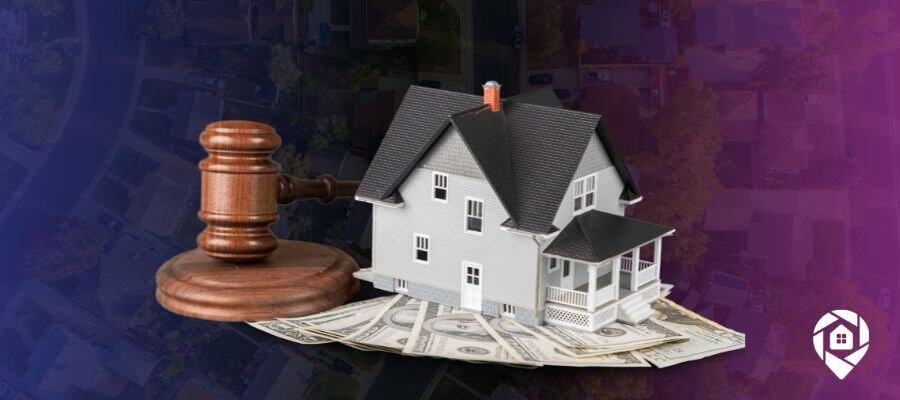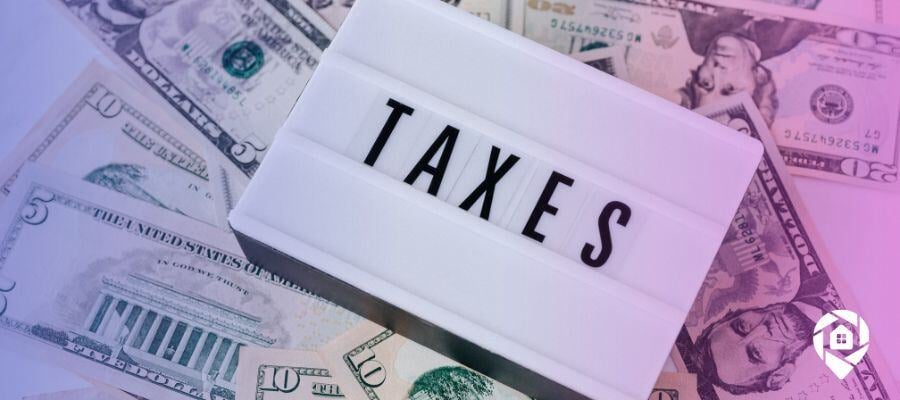
How to Profit from Tax Lien Property Investments

Investing in real estate is a smart way to grow your money. While most people think of buying houses or rental properties, there’s another option that many overlook—tax lien investments. These offer a different way to get involved in real estate without buying a property right away.
If you're willing to learn how it works, this strategy can lead to strong returns. In this blog, we’ll explain what tax liens are, how they work, and how you can use them to build your real estate portfolio.
What Are Tax Lien Properties?
A tax lien property is a piece of real estate, like a house, land, or building, where the owner hasn’t paid their property taxes. When someone fails to pay these taxes, the local government steps in and places a lien on the property. A lien is a legal claim. It means the owner can’t sell or refinance the property until the debt is paid.
To collect the money owed, the government can sell this tax lien to investors. When you buy a tax lien, you are not buying the property itself.
Instead, you are paying the taxes on behalf of the owner. In return, the owner must pay you back, with interest. This interest is what makes it a potential investment.
If the owner pays off the debt within a set time (called the redemption period), you get your money back, plus interest. If they don’t pay, you may be able to take ownership of the property, depending on your state’s rules.
Tax lien properties are not well-known to many new investors, but they offer a different way to make money in real estate, without buying a home outright at first.
Why Are Tax Liens an Attractive Investment?
Tax lien investing is a smart way to get into real estate without buying a home upfront. It’s a great choice for people who want to start small but still make a good return. One of the main reasons tax liens are attractive is the low cost of entry. Instead of spending thousands on a house, you can join a tax lien sale and buy someone’s unpaid tax bill for a much smaller amount.
When you invest in a tax lien property for sale, you’re not buying the house or land—you’re buying the debt. If the property owner pays their overdue taxes, they pay you back with interest. That’s how you make money. If they don’t pay in time, you might be able to take ownership of the property, depending on your state’s rules.
This kind of investment is flexible. You’ll find options like tax lien houses for sale that could turn into full property ownership. You might also discover tax lien land for sale—perfect if you're interested in buying land instead of a building.
Tax liens are appealing because they allow you to grow your money without fixing or managing a home right away. It’s a less hands-on way to invest in real estate and can lead to big rewards with the right research and planning.
The Mechanics of Tax Lien Investment
Buying a tax lien works a bit differently than buying a home. When you invest, you’re not buying the property itself—you’re buying the unpaid tax debt from the government. That means you’re acting like a lender. The property owner now owes you the amount of the back taxes, plus interest.
If the owner pays their debt during a time called the redemption period, you get your money back with extra interest. If they don’t pay, you may have the right to take over the property, depending on local laws. This gives investors a unique chance to earn income or even become property owners.
How to Profit from Tax Lien Properties?
If you want to turn a tax lien into a profitable investment, you need a solid plan. Buying tax liens isn't just about purchasing debt—it's about knowing how to turn that opportunity into real income or property ownership.
When you buy a lien, your first goal is usually to earn interest. If the property owner pays off their tax debt during the redemption period, you receive your original investment back along with interest, sometimes at a higher rate than traditional investments. This makes tax liens appealing to people looking for passive income.
But if the debt isn’t paid in time, you may be able to start the legal process to claim the property. At that point, you could fix it up and sell it, rent it out for steady income, or hold it as a long-term investment. Whether you're looking at residential homes, empty lots, or commercial buildings, the strategy you choose should match your budget, experience level, and local market conditions.
Understanding your exit strategy before you invest is key. Successful investors plan ahead, research local laws, and focus on properties that fit their financial goals.
Finding Tax Lien Properties
Finding good tax lien opportunities takes some research, but it’s easier than many people think. Most counties hold public auctions—either in person or online—where you can view and bid on available liens. These are usually listed as property tax lien auctions and can often be found on your county’s website.
You can also contact your local tax assessor or treasurer’s office to ask for a list of properties with unpaid taxes. Some areas publish tax lien certificates or notices in newspapers or public bulletins.
There are also real estate platforms like DealMachine that have auction data for you. While these may charge a fee, they can save you time by helping you track down valuable leads.
Before bidding, research each property carefully. Look into the location, condition, and value. Not every lien is a good deal. With due diligence and the right tools, you can spot worthwhile investments and avoid risky ones.
Conclusion
The realm of tax lien property investing might seem complex at first, but once you understand how it Investing in tax lien properties may seem complex at first, but with the right knowledge, it can become a practical way to build long-term wealth through real estate. With lower upfront costs and the potential for solid returns, tax liens offer an alternative investment path that’s worth exploring.
The key to success is preparation. Take time to understand your local laws, research each property carefully, and plan your strategy before making a move. Whether you’re aiming for interest income or the chance to own property, tax lien investing can be a valuable tool in your portfolio.

About Samantha Ankney
Samantha is the Social Media Manager at DealMachine, where she oversees all social media strategies and content creation. With 3 years of experience at the company, she originally joined as a Media Specialist, leveraging her skills to enhance DealMachine's digital presence. Passionate about connecting with the community and driving engagement, Samantha is dedicated to sharing valuable insights and updates across all platforms.



